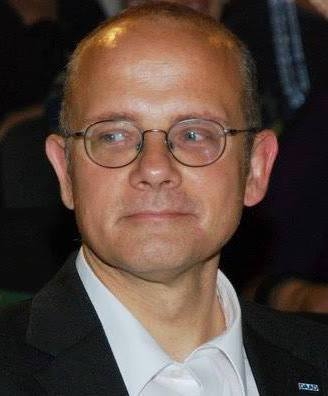Jakob Mischke lives in Kyiv, and is the coordinator of the Master's in German and European Studies program jointly taught by the National University of "Kyiv-Mohyla Academy" and Friedrich Schiller University of Jena. He studied Eastern European affairs and economics in Berlin, Kyiv and Frankfurt/Oder. He has been working for forumNET.Ukraine -- The Network of Information, Coordination and Ukrainian Studies, and for the German Association for Ukrainian Studies.
1. How would you assess the results of Yanukovych's first year of presidency in comparison to those of the previous Orange leadership?
President Yanukovych was able to silence any serious political opposition really fast. The usual clashes between competing camps went backstage, a picture of unity is presented to the public. But the promised reforms still did not take place as much, as they should or could have. Especially regretful is the total dismantling of the institutions of the political system, which has already been started in the time of the former government. Separation of power ceased to exist and it looked as if the other branches (including the so called fourth power -- the media) were eager to get under the roof of the presidential administration very quickly. While many parliamentarians have given up to act according to their election promises (the "tushky"), opposition leaders are kept quiet by the juridical system through selective examination of corruption cases against them. The present political system thus can be called authoritarian but it is still object to some constraints by society: The reaction to the --podatkovyj majdan" shows, that the ruling elite can be pushed to negotiations, if groups in society are able to formulate their positions and their aims -- something that seems to happen only, if it is about people's money. More abstract things like democracy or freedom of the media seem to interest only few people.
The political opposition in parliament is not able to present alternatives either, but relies on a blockade-policy, which is useless, as the government currently does not need any voices of MPs from the opposition fractions. Without public support in favour of democratic rules, the opposition is too weak to change the situation.
2. Should the EU use the Association, DCFTA and Visa-Free Regime negotiations as a leverage and conditionality factor to promote political and other reforms in Ukraine, or should these agreements be signed as soon as possible?
If using the visa-free regime as a mean of pressure, the ones who suffer would be the citizens of Ukraine rather than the ruling elite. If using the DCFTA for pressure, the EU risks to lose its influence in Ukraine , as the Ukrainian government has the possibility to also integrate eastwards. The DCFTA could be used to promote at least market reforms.
3. Could and should the current pro-Russian German position be replaced by a pro-Ukrainian position? To which degree may domestic political changes in Germany play a role for its future Eastern policy positions?
I do not think German foreign policy makers are thinking in terms of favoring one country over another. Trade relations with Russia -- especially in the energy sector -- are of course more important for Europe than relations with Ukraine and that will not change in the near future. But it does not mean, that relations with Ukraine have to be worse than relations with Russia .
4. Do you have any specific advice for the Ukrainian government to change Ukraine's image in Germany for the better, and improve Ukraine's attractiveness for German investors?
(Note: You can view every article as one long page if you sign up as an Advocate Member, or higher).




